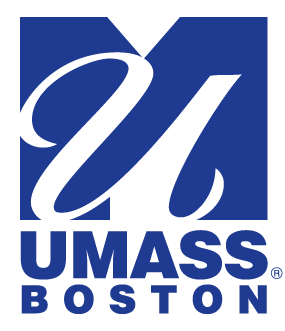Month 2: Out in the community already (“Hi public, we’re the media… but you can trust us.”)
Categories:
I am submitting two reports at once this time. The past two months were so busy that there was little time to reflect or to write about what was going on.
During the second month at my organization, I delved further into media training and started an active video news project with some volunteers. Most of my work this month was interactive and in the community, so in contrast to my plans, I did not have much time to write training manuals. A notable exception was authoring a revised Airshifter Handbook for WRFU 104.5-LP, our community radio station, with an extra manual on remote/live broadcast and streaming radio. The last version of the handbook had been written two or three years ago, and lacked a discussion of the goals of the organization or a studio checklist for DJs new to the radio. After talking with the Station Manager, we realized that a new handbook alone would not have much effect unless we also scheduled small group training sessions so we could discuss the social, legal, and technical aspects of running a community radio show. Our efforts were successful and now WRFU has an established program for orienting new DJs and getting new shows on the air, while respecting the needs and goals of the IMC as a whole, which includes other groups beyond the radio station.
One of those other groups is IMC Production, a volunteer group that I helped create in order to carry on and combine the legacies of the separate Video and Radio News groups that ceased to exist around two years ago. Simply put, all the IMC groups make sure that some different aspect of independent media is alive, productive, and engaged with the local population. Production is here to create audio-visual content for the community and for other groups, and to provide the facilities and personnel to make this possible. While our work to improve the studio is slow, in only my second month as a VISTA, we were able to initiate IMC Video News. IMC Video News actively searches for local or regional stories that are not being covered by other stations, goes out on-site to interview and shoot, and then edits and produces short-length film for distribution online and on Urbana Public Television. Even though others in the IMC look to us for technical multimedia advice, we spend far more time interacting with the public than sitting in front of computer screens editing. This has turned out to be very beneficial for our organization’s outreach and public relations, because we are listening to – and publishing – voices that others are ignoring.
In September, we produced segments on a Greenpeace Solar-Powered Concert (where I ran the mixer, too – next to a solar panel the size of a roof) and the closing of Illinois State Parks. We also assisted with an Iraq Veterans Against the War forum on post-traumatic stress disorder (for UPTV) and re-published the local Books to Prisoners’ Our Volunteer Experience film online. A sample of our work to date can be accessed on our new UC-IMC YouTube Channel. To get this project going, we have been using Adobe Premiere, but we will be expanding to incorporate more open-source software for editing. Two open-source/freeware video utilities that have been crucial to my work here have been Handbrake and MP4CAM2AVI. Of course, Audacity is a robust, simple, and reliable solution for audio editing that I would recommend to anyone and which most people seem to know, anyway. Though not technically free (you can use it for free with no features suspended or get a license for $50), I recommend Windows’ Reaper for multi-track audio editing and sequencing because it is easy, allows for flexible routing, comes with high-quality processing built-in, and accepts most free or commercial VST and DirectX plugins.
It doesn’t end there, though. The Sunlight Foundation webinar that I scheduled between members of WRFU, Production, and Public i (the IMC’s independent newspaper) was a small event, but so useful that I am posting the links here for CTC VISTAs to view. Bill Allison guided us through an overwhelming tour of websites that allow any citizen with Internet access to closely investigate the finances, bills, and records of members in the United States Congress, as well as information on lobbyists, federal contracts, and elections. Obviously, these types of topics and data are of great interest to journalist and media organizations like mine in the IndyMedia network, but this set of links provides another set of tools that all community organizers can use to bridge the digital divide and help the groups they are working with attain greater access to knowledge and the political process in their states and in the nation:
Congresspedia
OpenCongress.org
GovTrack.us
Senate.gov
Federal Election Commission
Sunlight Media Services - This deserves a special note for technology users/junkies: widgets with updated political and congressional data that you can embed in a web site or blog.
Politicker.com
OpenSecrets.org
Fortune535
FedSpending.org
TaxPayer.net
Finally, when even progressive mainstream media does not address all the questions your community may be asking:
DemocracyNow.org
Pacifica.org
I hope some of you find these links useful in your own VISTA work. Between radio, video, and live events, I trained around 30 individuals in the second month and identified many new resources that have helped me and others. Meanwhile, I got inundated with direct service… but I’ll save that story for the month 3 report.











